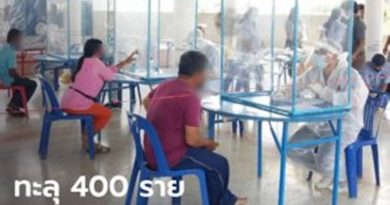Bumrungrad introduces FTRD, the most recent non-surgical technology for treating early-stage colon cancer for the first time in Thailand
Globally, cancer is still a leading cause of death. The World Health Organization (WHO) reports that in 2020, almost 10 million people died of cancer. Colorectal cancer is the third most common cancer with almost 2 million new cases, while the first two are breast cancer and lung cancer. In 2020, there were 935,000 deaths from colorectal cancer worldwide, second only to lung cancer. In Thailand, new diagnoses found 21,103 cases of colorectal cancer and 6,039 deaths.
Clinical Assoc. Prof. Dr. Tossapol Kerdsirichairat, Gastroenterologist at Bumrungrad International Hospital, states, “The early stages of colon cancer usually show no symptoms. Most cases of colon cancer are diagnosed during annual physical examinations. Symptoms of late-stage colon cancer include weight loss and bowel obstruction. Patients may come to the hospital with abdominal swelling, bloating, and nausea and vomiting. If cancer is detected on the right side of the colon, the stool will be black. If cancer is detected on the left side of the colon, the stool will be red. Anemia may be present during regular blood tests for other reasons, which can be a clue of malignancy, including colorectal cancer.”
“What I’d like to emphasize is that more than 30-50% of cancers that kill people, including colon cancer, are preventable and treatable. If colon cancer is detected early, the survival rate is high. Colon cancer originates in the colon and spreads to lymph nodes. It eventually metastasizes to the liver and/or lungs. If the cancer is detected when it has metastasized to the liver and/or lungs, the 5-year survival rate is 14%. However, if the cancer is detected when it has spread to the lymph nodes, the survival rate increases to 72%. With comprehensive evaluation, physicians may be able to raise the concern of hereditary risk factors for cancer, and some precancerous conditions can be detected before they turn cancerous. If colon cancer is detected while it is still in the colon, before it has spread to other organs, the survival rate can be as high as 90%.”
Recently, Bumrungrad International Hospital has begun using the Full-Thickness Resection Device (FTRD), the latest non-surgical technology in treating early-stage colon cancer. No abdominal incision is required. FTRD helps treat early-stage colon cancer when the cancer is present in the colon or is smaller than 3 centimeters. FTRD is done through a flexible, elastic camera which is equipped with clam-like jaws and inserted through the anus. The FTRD technology enables surgeons to remove cancerous growths and close the incision in the colon at the same time. FTRD leaves no abdominal incision scar, reduces infection, and blood loss from


